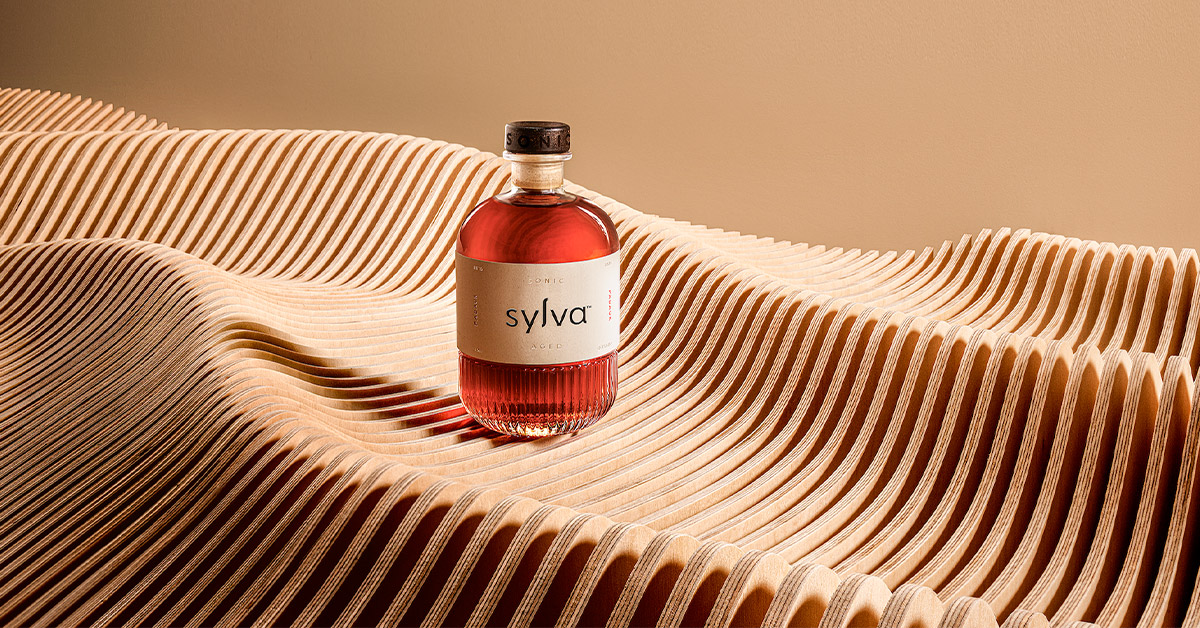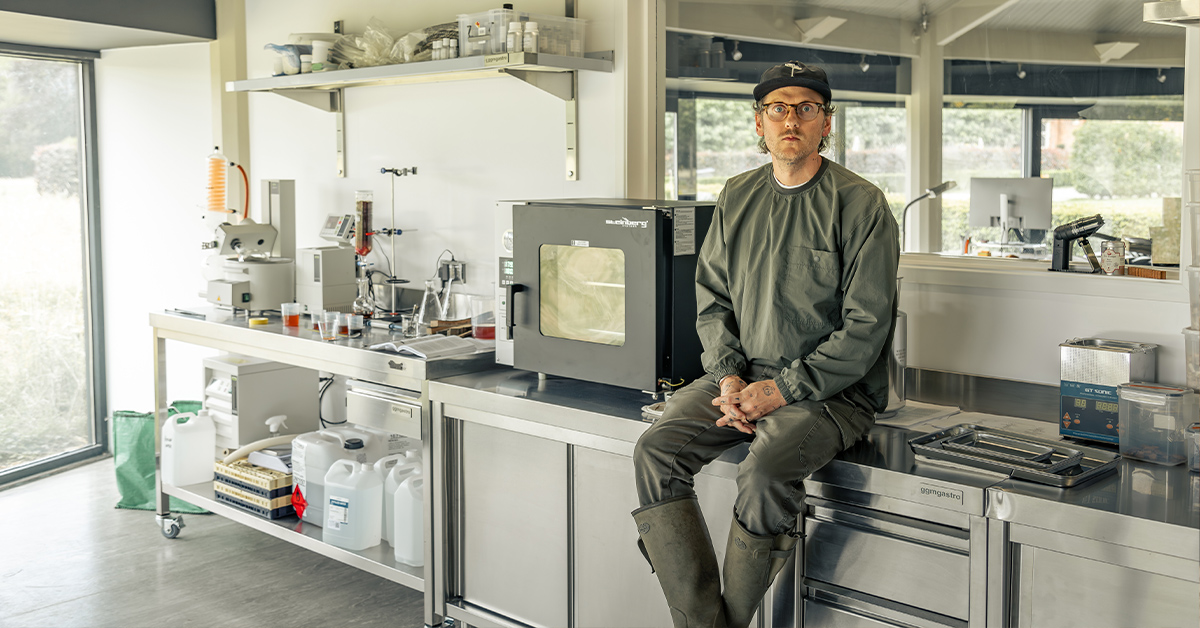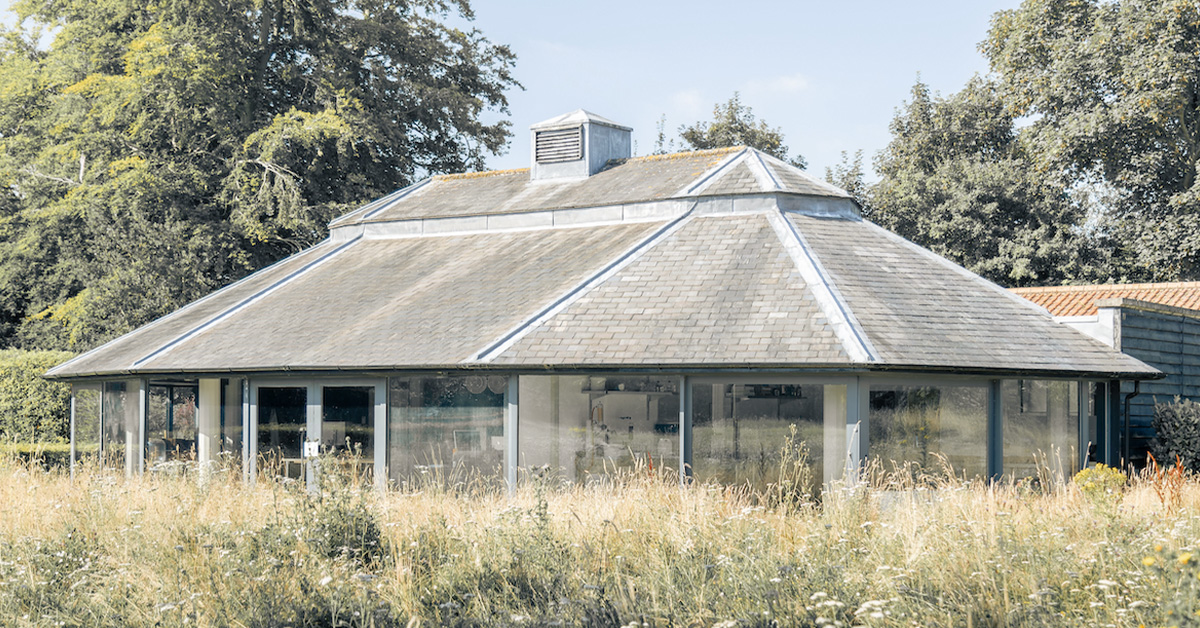
How do you innovate in the forest that’s grown out of the once-niche non-alcoholic spirits category? Look to the trees.
At least that is the perspective that Seedlip founder Ben Branson has taken with Sylva Labs, a NA dark spirits distillery and maturation laboratory located in the U.K. on the grounds of a former 10th century Benedictine Monastery. Sylva is the latest endeavor out of Branson’s Pollen Projects company which launched Seasn, a two-SKU line of NA bitters earlier this year.
Branson, along with Jack Wareing, a former bartender and Pollen Project’s head of R&D, have built the innovation lab as a way to do something truly unique in NA spirits. Sylva is creating small-batch, limited release alcohol-free spirits that aren’t trying to mimic other dark liquors like whiskey, rum or cognac but are relying on wood to flavor the alcohol-free spirits.
“We are so much more interested in what a dark liquid could be than aiming for something that already has been,” he told BevNET. “You don’t go to fine-dining restaurants like Alinea or Eleven Madison Park to eat spaghetti bolognese, fish and chips or things you are familiar with. You go there to be wowed and mesmerized and entertained. You go there knowing that you’re going to try new things.”
Harnessing The Flavor Of The Woods
Branson’s approach bushwhacks into new territory by creating unique production processes and technology to create a distilled, alcohol-free spirit with its base flavors coming from wood. The liquids coming out of the distillation lab will not be flavored by aging in barrels but representative of the actual trees that are the base for distillation.

Sylva means “of the woods,” according to the company, and it is trying to embody that idea by using a variety of techniques like sonic maturation, oxygenation, pressure, vacuum kiln toasting and heat to extract the flavor, color and character from specific tree species. Branson’s team is experimenting with the wood by cutting the product into wood staves and charring, toasting, or baking, or leaving it fresh and then distilling the wood directly with cereal grains into a liquid.
The unique nature of Sylva’s approach has to account for variables that have not been explored, including the regionality of different wood varieties, their water content, or even which parts of the tree are being used.
“Should we extract all of the leaves? The bark? The heartwood? The sap? The fruit? What about roots? How do tree roots taste?” he said. “I don’t even know the answers to these questions yet, but I’m really excited to explore it.”
Researchers estimate there are over 73,000 species of trees in the world, opening a very diverse range of flavors that could be used for Sylva Labs products.
“I am fascinated by the 360 degrees of how amazing wood and trees are,” Branson said. “We are putting this whole new lens on celebrating wood for its potential to deliver an amazing diverse array of flavor that is beyond what people know of hickory, oak, barbecue or whiskey flavors.”
Terroir In Non-Alc Spirits
Sylva Labs first product released today is Paduak, which blends the spirit’s namesake wood, native to West Africa, with rye and spent American oak barrel staves from Nc’nean Distillery in Scotland.
Paduak will only be available on the Sylva website and, like all other blends coming from the lab – located on the border of Essex and Suffolk counties – will only be sold in the U.K. This business model is part of a regional approach to product launches.

Branson is planning two other Sylva Labs locations to be built out next year: one somewhere in New York and the other in Japan. These labs will focus on distilling native wood species that provide a sense of place to the small-batch production.
“I want to make the fewest sacrifices and compromises in how you make those liquids,” he said. “I don’t want to make liquids in the U.K. for any other market because I want to retain the extremities that we are going to and the localization that we can then have, and then replicate that process in other markets.”
Unlike Pollen Projects’ NA bitters brand Seasn, the model is focused on limited runs of each release that will be sold via pre-order. Seasn’s launch was similar to the early days of Seedlip, which spread the NA spirit through the on-premise channel and followed with retail distribution. Sylva is focused on a DTC, limited release model that positions it as a premium spirit.
In the future, Branson is open to the idea of “allocations” made specifically for, or in collaboration with, a bar, restaurant or retailer, but “the model is the model,” he said.
He sees this bespoke process as part of providing a terroir-driven approach to making NA dark spirits. Just as with wine, Pinot Noir grapes grown in Burgundy, France will have a different character to the same varietal grown in California. In the same way, a maple grown by a lake will have the flavors of that lake and possibly added water content that will change how that liquid will taste depending on the sourcing.
By tapping into the sense of place and terroir that has driven wine and artisanal spirits like mezcal, the approach could signal what the next waves of non-alc products may look like beyond spirit substitutes and mood-enhancing functional options.
“Why wouldn’t we want to produce U.S. additions in the U.S., for the U.S., using the amazing variety of wood species that you have in the U.S.,” Branson said. “If we want to increase the scale of Sylva, we want to do that by increasing the number of laboratories rather than increasing the production capacity or factory size. In this way we have more control over the process and those liquids.”